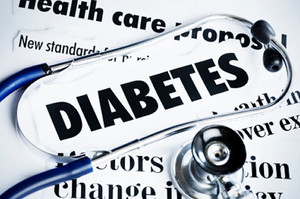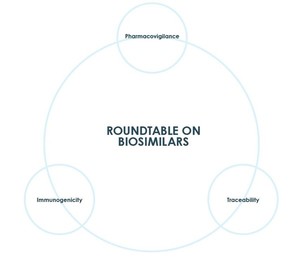The Association of British Clinical Diabetologists (ABCD) has issued a position statement on the use of biosimilar insulin. The statement summarises information on the advantages and disadvantages of using biosimilar insulins and gives the association’s position on when biosimilar insulins be used [1].
To date, the European Medicines Agency (EMA) has approved 54 biosimilars for use in Europe [2]. These include four products for use in diabetes. Three insulin glargine biosimilars, Abasaglar (previously Abasria), Lusduna and Semglee, were approved in September 2014 [3], January 2017 [4] and March 2018 [5], respectively. An insulin lispro biosimilar, Insulin lispro Sanofi, was approved in July 2017 [2]. Insulin glargine is a long-acting basal insulin analogue, given once daily to help control the blood sugar level of those with diabetes. Insulin lispro is a fast-acting insulin analogue used to treat people living with Type 1 or Type 2 diabetes.
The ABCD position statement covers the following topics:
What is a biosimilar: the ABCD points out that a biosimilar is a biological medicinal product that is developed to be highly similar to an existing biological (reference medicine) in physiological and biological terms. They add that ‘once [a biosimilar] is demonstrated to be comparable, the biosimilar is assumed to have the same benefits and risks as the original insulin in terms of quality, efficacy and safety’.
Advantages and disadvantages of biosimilar insulin: The association states that the main advantage of biosimilar insulin is the potential cost discount compared with originator insulin of about 15%. For disadvantages, they point to extra training requirements due to the complexity of biologicals and the possibility of immunogenicity.
Interchangeability and substitution: the ABCD points out that the Abasaglar device is not the same as that of the originator insulin glargine, Lantus; and that Abasaglar cartridges cannot be used in the reusable pen devices produced for Lantus. They recommend that only new patients be initiated on Abasaglar and that patients stable on Lantus should not be switched to Abasaglar.
The ABCD acknowledges the benefit from the development of biosimilar insulins predicated upon potential cost savings to the National Health Service (NHS) without compromising either efficacy or safety.
The association’s position on biosimilar insulins is therefore that:
- Biosimilar insulins could be considered for all newly diagnosed patients with type 1 diabetes who have not been exposed to the reference drug and in patients who require a review of their therapy due to poor control.
- When patients are established on a current insulin regimen, those achieving their target HbA1c without hypoglycaemia should not be automatically switched to a biosimilar insulin.
- Following the switch to a biosimilar insulin, it is recommended that provision for review and ongoing supervision by a specialist team is provided.
The ABCD concludes that ‘with the advent of an increasingly complex portfolio of insulin therapy, it is imperative that all healthcare staff receive education about safe insulin prescribing which specifically includes information on biosimilar insulin’.
Related articles
ASCO issues position statement on biosimilars in oncology
European oncologists back biosimilars with position paper
References
1. Jayagopal V, Drummond R, Nagi D, on behalf of the ABCD. Association of British Clinical Diabetologists (ABCD) position statement on the use of biosimilar insulin. Br J Diabetes. 2018;18:online ahead of publication.
2. GaBI Online - Generics and Biosimilars Initiative. Biosimilars approved in Europe [www.gabionline.net]. Mol, Belgium: Pro Pharma Communications International; [cited 2018 Dec 14]. Available from: www.gabionline.net/Biosimilars/General/Biosimilars-approved-in-Europe
3. GaBI Online - Generics and Biosimilars Initiative. European approval for biosimilar insulin [www.gabionline.net]. Mol, Belgium: Pro Pharma Communications International; [cited 2018 Dec 14]. Available from: www.gabionline.net/Biosimilars/News/European-approval-for-biosimilar-insulin
4. GaBI Online - Generics and Biosimilars Initiative. EMA approves biosimilars of insulin glargine and teriparatide [www.gabionline.net]. Mol, Belgium: Pro Pharma Communications International; [cited 2018 Dec 14]. Available from: www.gabionline.net/Biosimilars/News/EMA-approves-biosimilars-of-insulin-glargine-and-teriparatide
5. GaBI Online - Generics and Biosimilars Initiative. Insulin biosimilar Semglee gains EC and Australian approval [www.gabionline.net]. Mol, Belgium: Pro Pharma Communications International; [cited 2018 Dec 14]. Available from: www.gabionline.net/Biosimilars/News/Insulin-biosimilar-Semglee-gains-EC-and-Australian-approval
Permission granted to reproduce for personal and non-commercial use only. All other reproduction, copy or reprinting of all or part of any ‘Content’ found on this website is strictly prohibited without the prior consent of the publisher. Contact the publisher to obtain permission before redistributing.
Copyright – Unless otherwise stated all contents of this website are © 2018 Pro Pharma Communications International. All Rights Reserved.








 0
0











Post your comment